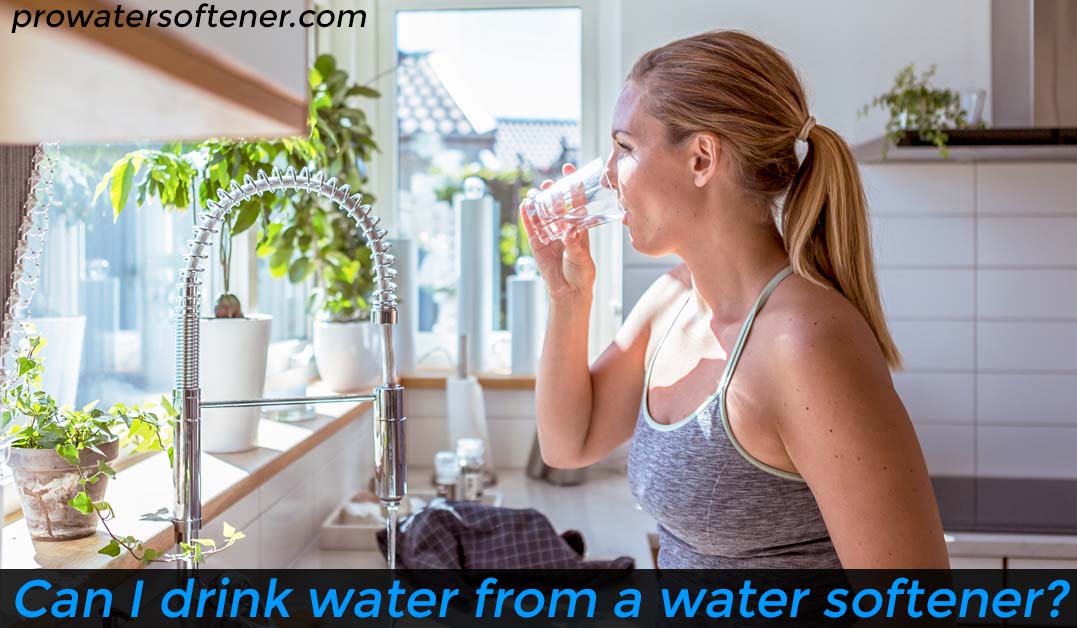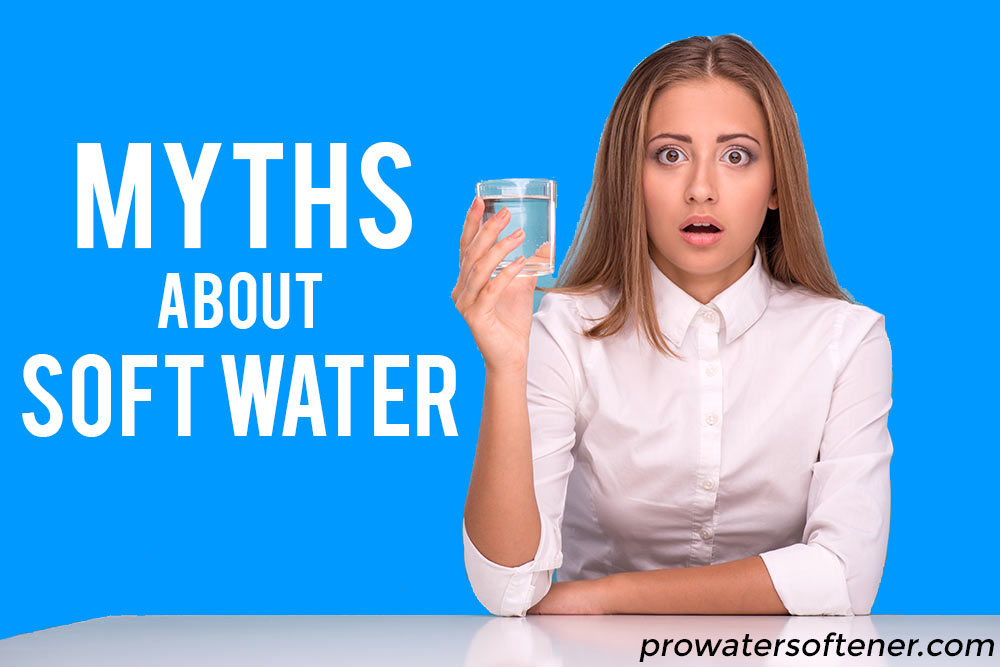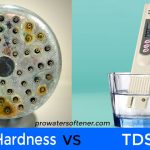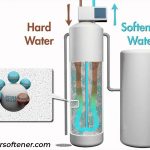If there is hard water in your area, then having a water softener can make your life easy. It will soften hard water and give you safe water to drink. So it is right that you can drink water from a water softener. However many consumers are worried about whether they should drink water from a water softener or not as they consider it harmful to their health. They think that softened water will increase the level of sodium in their diet. It is totally a myth, and a water softener will not provide you with salt-tasted water. During the water cleaning process, sodium bicarbonate, which is totally different from sodium chloride, is formed.
During the water cleaning process, the amount of sodium mixed in hard water depends on the hardness of the water. 20mg to 30 mg of sodium is mixed in every 8 ounces of water only if the water is very hard. It could be less if the hardness level of water is low. This sodium quantity is not harmful to human health as we take more than this through different other things. For example, an 8-ounce glass of milk contains 120 mg of sodium, and the same amount of orange juice contains 25mg of sodium.
Table of Contents
Myths about Water Softener Systems
Sodium is mixed in water to clean out the harmful ingredients from hard water. Some people add salt to a water softener but it does not have any taste in water. Why? Usually, water softeners take this salt as an ion exchange process to remove minerals like magnesium and calcium, which make the hard water.
Most people think that adding sodium in the softening process is unhealthy. A typical amount of sodium is added to hard water according to the water’s hardness. That amount is too small to have any negative impact. The experts say, “For most healthy adults, the added amount of sodium is not an issue.”
There is also a general perception that water softeners purify the water. It is not a reality. The fact is that water softeners reduce water’s hardness by removing minerals and metals that can create problems. It does not filter out all containments. To purify water, you need some water purifiers that do this job.
Can you drink soft water?
If you are thinking of buying a water softener, then go for an ion exchange water softening system. You wonder about drinking salty water. Actually, adding the amount of sodium depends upon the hardness of the water. Even if the water is very hard, it needs a little sodium to make it soft water. The approximate amount of sodium is 12.5 milligrams per glass which is a very safe level for a healthy and normal diet. But still, if you are serious about salt, then you can consider other water treatment methods.
Experts recommend keeping softened water away from babies or baby feed preparation, especially for those aged six weeks or under. The reason is that the babies’ kidneys are not formed yet, and salty water can harm their health. If the doctor advises anyone to a low sodium diet, they should not drink softened water.
Concluding, softened water is not harmful to healthier and normal persons. It has a minor amount of sodium that can’t be damaged, but the patient and baby child should be kept away from this. Also, it is important to check the water hardness with an expert and get a better water softener that contains a sufficient amount of sodium.
Check Out: Best Rated Water Test Kits/Strips in 2024
Frequently Asked Questions (FAQs)
1. Is it safe to drink water from a water softener?
2. How to make softened water drinkable?
Hard water usually has over 200ppm calcium carbonate. However, the very hardest water (400-450ppm calcium carbonate) would exceed the recommended sodium level. In this case, using a filtered drinking water tap alongside your water softener will help you to get unsoftened water to drink. So in this way, you can make softened water drinkable.
3. What are the effects of drinking softened water?
Usually drinking softened water have no effects. But in some cases, effects can be seen. If you use a salt-based water softening system, it will consume more sodium. An increased sodium intake means an increased risk of heart disease, Type II diabetes, and stroke. If you drink softened water from a salt-based water softener system, it is unhealthy. But you can drink water from salt-free water softeners.
4. Why does softened water feel slippery?
Soft water replaces those magnesium and calcium ions with sodium ions. The result is soft water, loaded with salt. The salt is what makes the water feel slimy. After you buy a water softener, you might feel slimy and slippery after you take a shower, like you haven’t gotten all the soap off of you. So you can say, softened water is slippery.
5. How do you make softened water safe to drink?
If you have very hard water and you’re concerned about sodium, the best way to make soft water drinkable is to use a reverse-osmosis filter or any water purification filter. Reverse osmosis is a type of water purification technology that uses a semi-permeable membrane to remove salt and other large particles from the drinking water.
6. Do water softeners add salt to drinking water?
Water softeners do not add any salt to the drinking water. The water softening process breaks down the salt to use its sodium. Salt is a chemical compound while sodium is an element. You’ll find sodium in many foods and ingredients such as bread, cheese, and most obviously, table salt.
Check Out: Top Salt-Free Water Conditioners

Steve Smith is a United State Licensed Plumber with over 18 years of plumbing experience. Steve has conducted residential and commercial plumbing jobs throughout the state and currently works for one of California’s largest plumbing companies. When he’s not working, Steve enjoys spending time with his daughter and son.










Leave a Reply